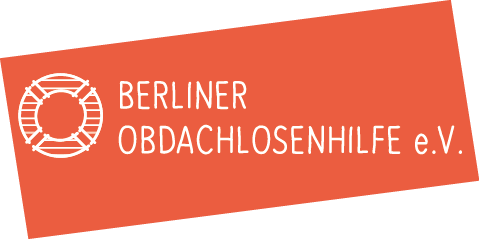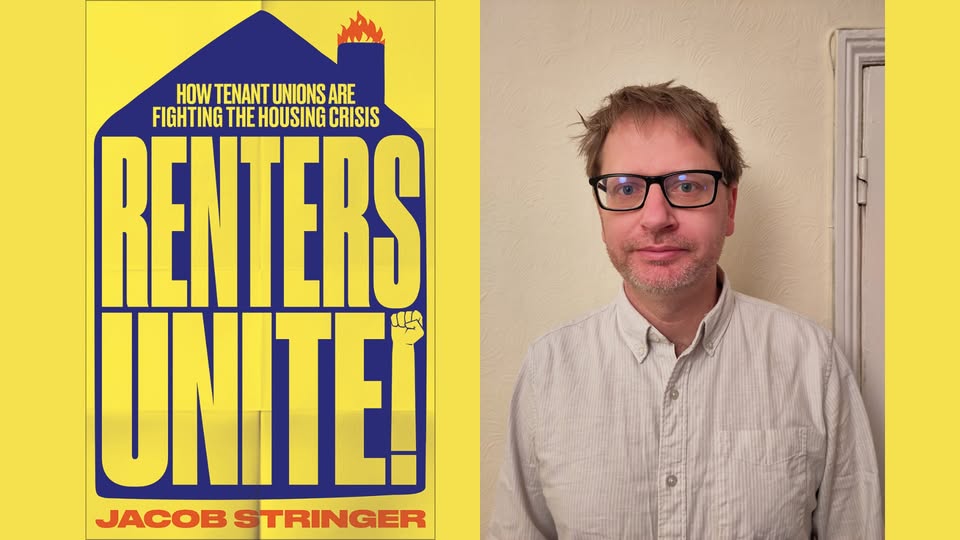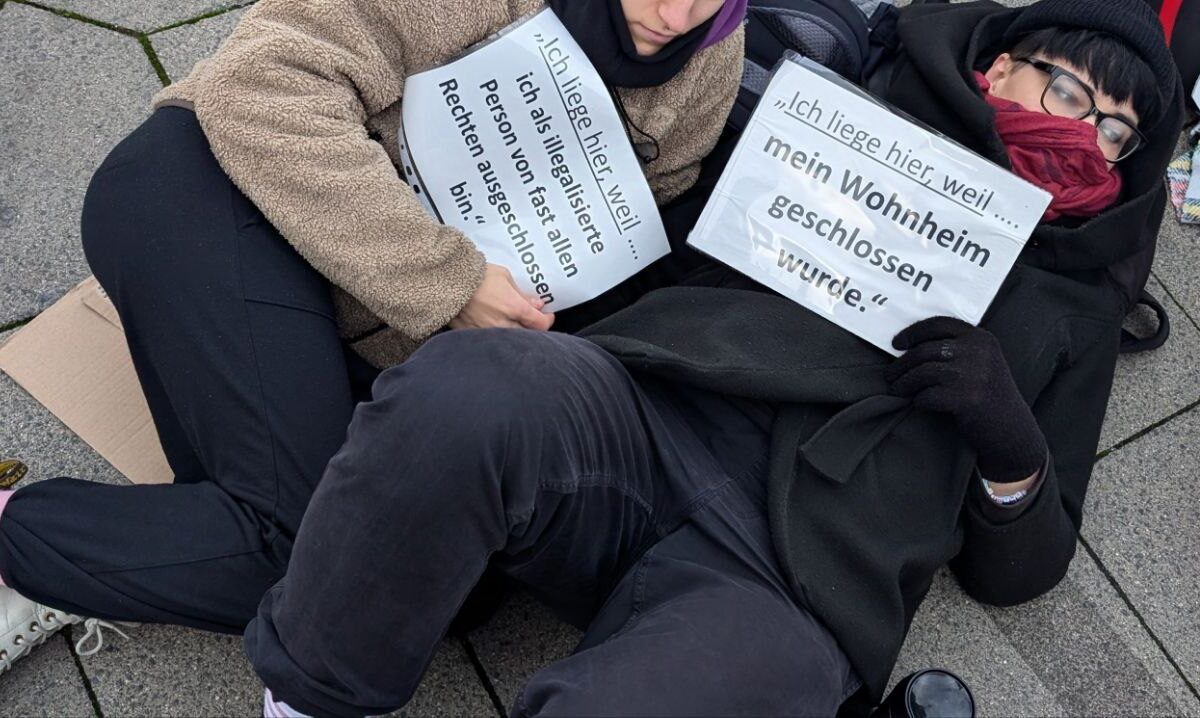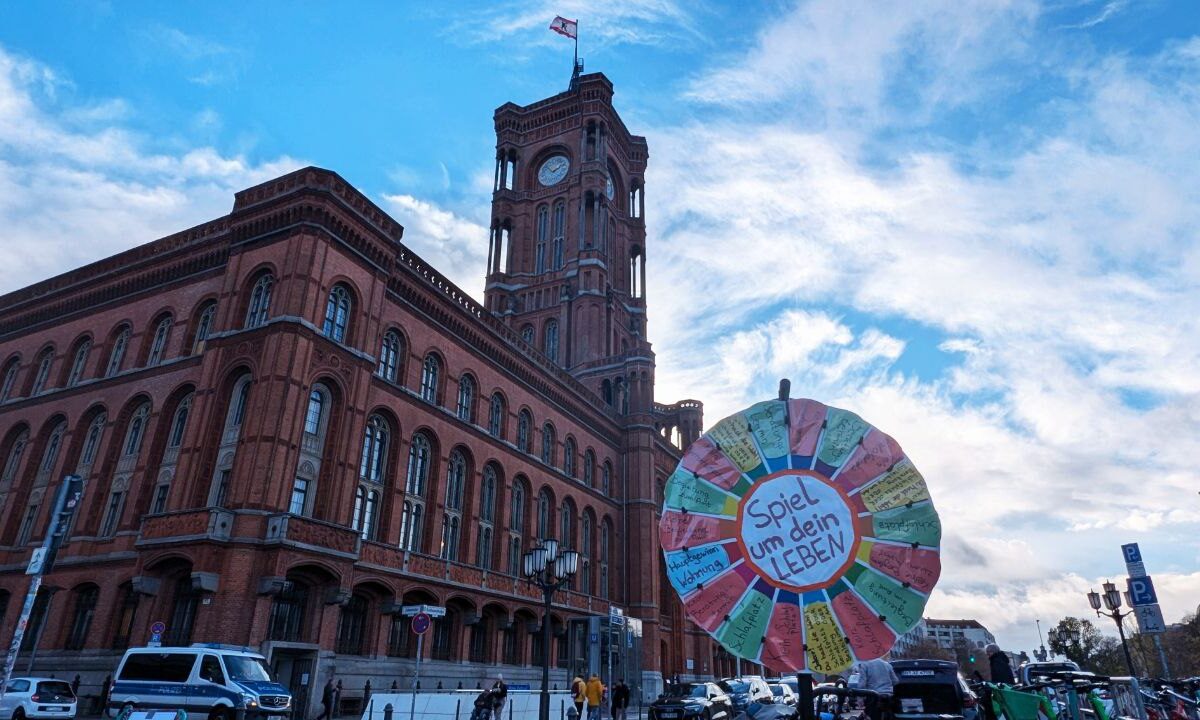theleftberlin has just agreed with Neues Deutschland (ND) that we will be publishing Nathaniel Flakin’s Red Flag column, which also appears in ND. This is the first of these columns published here.
In Germany, trust in democracy is eroding. A study this summer showed that only every second person had faith in the current system. Pundits are debating what has gone wrong.
I have a theory: Two years ago, a huge majority of Berliners voted to expropriate big landlords. 59.1 percent called for the »socialization« of gargantuan realty companies like Deutsche Wohnen and Vonovia. Yet Berlin’s next two governments, who had each gotten far less votes than the referendum, have done everything they could to sabotage the people’s choice. Both Franziska Giffey of the SPD and Kai Wegener of the CDU oppose expropriation on principle, so they’ve come up with one delaying tactic after another.
Does this feel like a democracy? Or some kind of third-rate autocracy, where votes are only respected if the people in power agree?
Now, yellow and purple posters have reappeared all over the city. On the second anniversary of the vote, on September 26, the campaign »Deutsche Wohnen & Co enteignen« (DWE) announced that they will be launching a second referendum. We will need to collect 20,000 and then 170,000 signatures once again. (It was fun!) Last time, we voted on a proposal that the government formulate a law for expropriation. Now, the campaign is going to write such a law themselves. Alles muss man selber machen! (You have to do everything yourself.)
Why didn’t they just write their own law to begin with? Because a few years ago, no one knew what expropriation according to Article 15 of Germany’s Basic Law would look like. Now, lawyers and activists have been studying the problem, and DWE is collecting 100,000 Euros to hire a law firm to draft the text.
Wegner’s government claims it is working on an Expropriation Framework Law, which would set the parameters for a future law on expropriation – the Constitutional Court could then check if this passed muster. The obvious problem, as a legal expert explained to ND, is that such a law would not actually do anything. No one would have standing to sue until a real estate company’s property is moved into public ownership. As a German idiom puts it: “No plaintiff, no judge.”
This is just another cynical move against democracy. We have already been through the farce of Giffey’s “Expert Commission,” which took a year to report that yes, Article 15 of Germany’s Basic Law really does allow for property to “be transferred into public ownership” if it’s “for the public good.” I could have told them that with a quick Google search. Berlin expropriates buildings all the time – but so far, it’s only to build the Autobahns that the CDU and the SPD love so much. Why should expropriation be unthinkable to lower rents?
More than two years ago, I wrote about a long-abandoned building on my block that was finally getting renovated. The project is controlled by Henning Conle, a billionaire heir who takes his profits from reality speculation to make massive illegal contributions to the AfD. Construction work is ongoing, but tenants have started moving in. I have been living on this block for a decade, and my rent is about 8.50 Euros per square meter. These new apartments are going for almost 22 Euros – an increase of two-and-a-half times in ten years.
No wonder people are open for radical solutions. Berlin’s housing market is controlled by the vampire squids of financial speculators, and more than a few actual gangsters. Just look how the owners of Habersaathstraße 40-48 hired violent thugs to trash the apartments of renters they wanted out – despite a court order.
Expropriation would be a step towards real democracy – the vast majority of Berliners are renters, and we would gain some control over our housing. Ultimately, though, signatures will not be enough. We will need occupations of empty apartments as well as rent strikes to shift the balance of power. Direct action is what democracy looks like. It’s time to get active with DWE and their English-speaking group, Right to the City.
This article was first published by Neues Deutschland.




